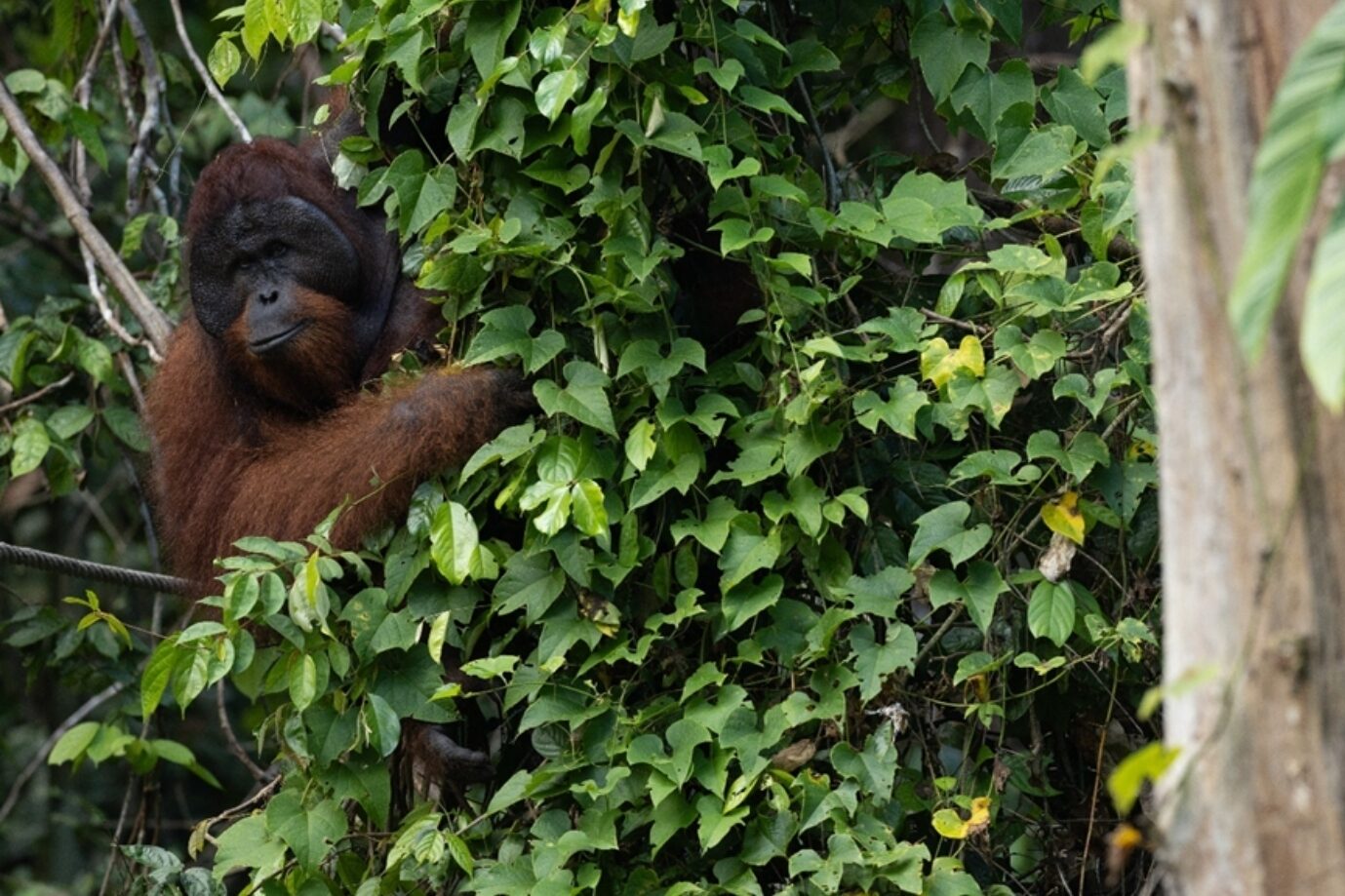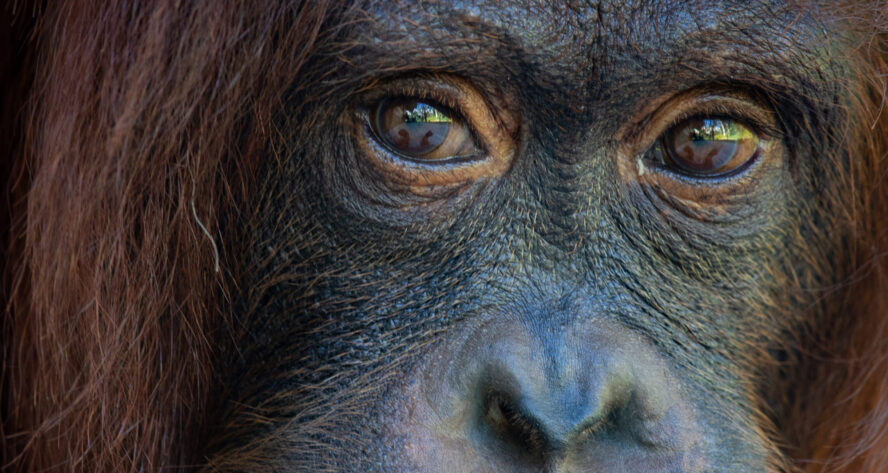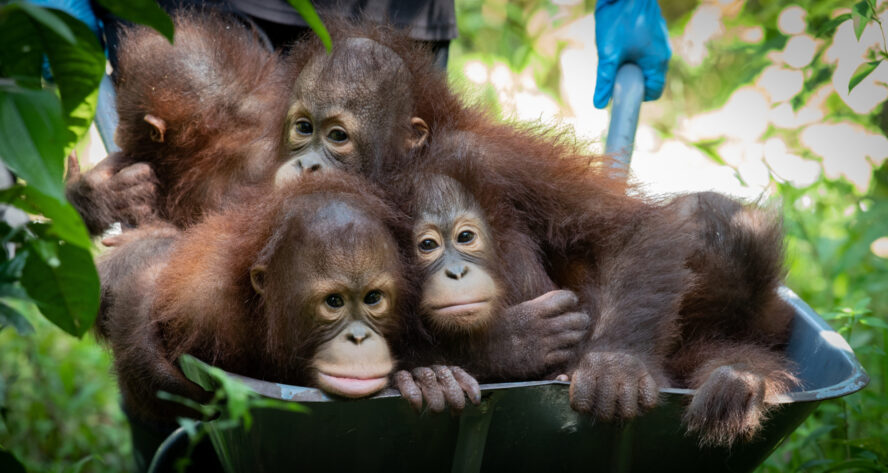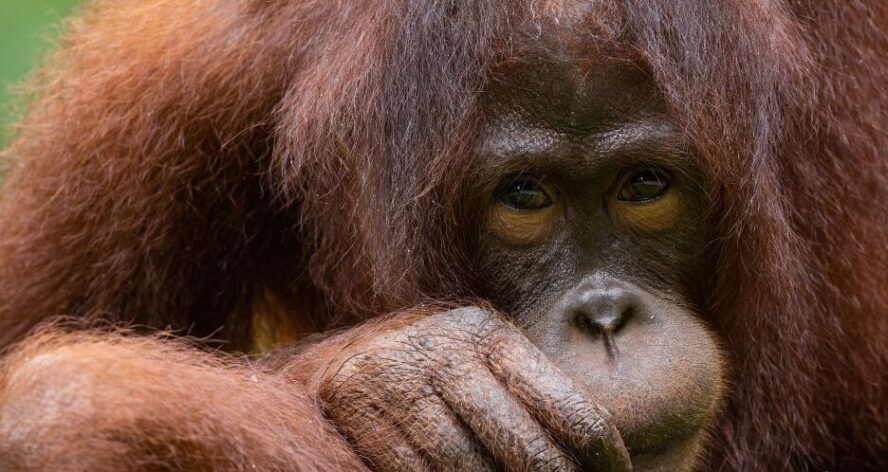

Resources
Orangutan dads
Do male orangutans make good fathers?
Yes, but just not in the way you'd think.
Contrary to what many people believe, orangutans do not live in family groups. Whilst female orangutans have an exceptionally strong bond with their young, caring for them for up to 8 years, male orangutans play a very limited role.
Unlike other great apes, wild male orangutans lead mainly solitary lives, only really interacting with other orangutans in certain circumstances including when their territories overlap, during mast fruiting seasons, and mating encounters with females. Once a male has mated with a female he will resume his independent lifestyle.

As humans are a highly social species, it can be hard for us to understand this behaviour but there a number of possible reasons to explain the unique social dynamics of orangutans.
Orangutans have evolved to thrive in the challenging rainforest environments of Borneo and Sumatra, where resources can be scarce and competition for them is high.

Adult male orangutans devote much of their time and energy to defending their territory and foraging for food. Living alone enables them to prioritise their own survival and reproductive success, and this is more important than investing time in offspring care. Self-preservation and the continuation of the gene pool are likely to be the driving forces behind their solitary existence.

While male orangutans do not fit the traditional human image of a nurturing father, their behaviours are essential for the continuation of their species. In this way, they contribute to the next generation, ensuring the success of their offspring through their solitary and strategic lifestyle.
Explore more articles
![Orangutan eyes close up]()
Resources
Why orangutans need our help
Bornean orangutans are critically endangered, facing multiple threats in the wild.
![Home page wheelbarrow]()
Resources
Five ways you can help orangutans
By making small changes you can have a big impact on orangutan conservation!
![Photo of female orangutan]()
Resources
Orangutan facts
Orangutans are one of our closest relatives in the animal kingdom sharing almost 97% DNA!



